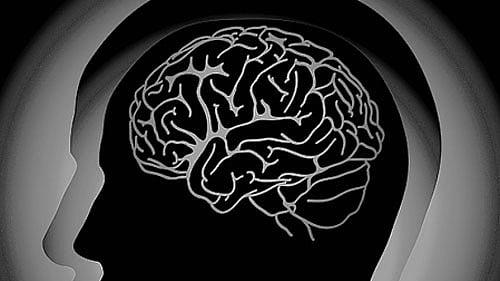
Representative image of human brain.
Credit: DH Illustration
Brain tumours can cause physical and mental symptoms, including headaches and mood changes. The symptoms can differ depending on the type, location, and stage of the tumour. If a person does have symptoms that signal a brain tumour, early diagnosis and treatment are important to help prevent the tumour from growing.
When it comes to detecting potential brain tumours, the symptoms can often be subtle or mistaken for other conditions. Here are 10 uncommon symptoms that could serve as red flags for a possible brain tumour diagnosis. Although these symptoms are rare and often associated with other conditions, it is important to be aware of them and consult a medical professional for proper evaluation.
Headaches with atypical patterns
While headaches are common, pay attention to persistent headaches that have unusual patterns, such as worsening intensity or occurring at specific times of the day. Frequent migraines or headaches that don’t respond to typical treatments could be a sign worth investigating.
Gradual changes in vision
Unexplained vision problems, such as blurred or double vision, difficulty focusing, or even loss of vision in one eye, can be indicative of a brain tumour affecting the optic nerve or nearby areas.
Seizures
Seizures that develop suddenly in adulthood without a prior history of epilepsy should raise concerns. Brain tumours can trigger seizures by disrupting the normal electrical activity of the brain.
Persistent nausea & vomiting
Nausea and vomiting that have no apparent cause and do not respond to conventional treatments might be a result of increased intracranial pressure caused by a brain tumour.
Unexplained cognitive decline
If you or a loved one experiences unexplained memory problems, confusion, difficulty concentrating, or significant changes in personality or behaviour, it could be an indication of a brain tumour affecting cognitive functions.
Dizziness or imbalance
Chronic dizziness or unsteadiness, especially if accompanied by other unusual symptoms, may be a result of a tumour affecting the balance centers of the brain.
Chronic fatigue or lethargy
If you constantly feel tired or lack energy, even with adequate rest and sleep, it’s worth considering a medical evaluation. Brain tumours can disrupt the normal functioning of the brain, leading to fatigue.
Unexplained weakness, numbness
Localised weakness or numbness in specific body parts, such as an arm or leg, that has no clear cause or resolves spontaneously, should be investigated further.
Speech and language difficulties
Difficulty speaking, slurred speech, or sudden changes in speech patterns could indicate an underlying brain tumour affecting the areas responsible for language.
Ringing in the ears
Sudden changes in hearing or persistent ringing in the ears (tinnitus) that cannot be attributed to any other cause may warrant further investigation for a brain tumour affecting the auditory system.
Although these 10 uncommon symptoms could potentially point towards a brain tumour diagnosis, it is important to remember that they are also associated with various other conditions.
(The author is a senior consultant neurosurgeon.)